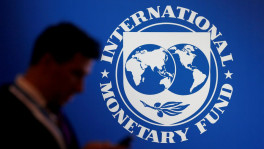Russia-Ukraine crisis: Bangladesh has no worries, for now

The Russia-Ukraine conflict has already put economies across the globe on the line, but Bangladesh has possibly been shielded from any of its immediate effects, say policymakers.
Much of the world is now bracing for a shockwave from a record surge in oil prices which can further stoke inflation and trip up growth hard on the heels of Russia's military operation in Ukraine.
But for now, Bangladesh will not feel any pressure from the global oil market volatility as the government has recently adjusted fuel prices.
On the other hand, sanctions imposed by the United States on some Russian financial institutions may temporarily disrupt transactions with Bangladesh, but it is not a big concern, say government officials.
Currently, Russia is the fourth highest development partner for Bangladesh.
In 2018, Bangladesh signed its biggest ever credit contract worth $11.38 billion with the country to build the Ruppur Nuclear Power Plant.
In the past few years, Russia has become an active bilateral development partner along with China and India as Bangladesh has been mobilising resources from these countries to fulfil growing investment needs in its mega infrastructure projects.
The foreign aid committed by Russia for Bangladesh stands at $12.21 billion, of which $4.34 billion has already been disbursed by FY21 and the remaining $7.8 billion now is in the pipeline.
The highest disbursement of Russian credit amounted to $1 billion in the last fiscal year, according to the Economic Relation Division (ERD) of the finance ministry.
When contacted, a senior executive at ERD said the sanctions on Russian financial institutions will have a temporary effect as the Bangladesh government will have to change the payment method if any relevant organisation comes under sanctions.
The government is now closely monitoring the situation.
The Ruppur credit agreement was signed on a government-to-government basis and Russian payment is made mostly through the Federal Reserve Bank as the loan they have committed is in non-Russian currency, according to a senior executive of Bangladesh Bank.

The Bangladesh Bank has no account with the Russian central bank. If the Fed refuses to make payments to any Russian bank, Russia will decide how to make payments, he said.
However, a hike in prices of global commodities and uncertainties in the world economy may have an impact on Bangladesh, he added.
The two banks designated are Russia's Promsvyazbank, the bank of the armed forces, and Kremlin-controlled VEB bank, the nation's development bank that came under US sanctions in response to the beginning of a Russian invasion of Ukraine.
The sanctions prevent the VEB and PSB banks from doing business in the US, cut off their access to the US financial system and freeze any assets under American jurisdiction. VEB banks are involved in Russian credit disbursements to Bangladesh.
The effects of the oil price hike would be determined by how long the sanctions last, said Dr Zahid Hussain, former lead economist at the World Bank's Dhaka office.
If the situation improves fast, Bangladesh's economy and its external trade will not have much impact. Otherwise, the country will suffer a big blow as a surge in fuel prices will begin to have cascading effects on imports and local production, he added.
Impacts on energy
Moody's Investors Service already announced that global oil and liquified natural gas (LNG) prices are likely to see a sharp rise in the event of a Russia-Ukraine conflict which would have negative implications for net energy importers.
Crude oil prices are now hovering at around a 7-year high, with Brent oil prices surging above $100 a barrel for the first time since 2014. It may be noted that Russia is a key supplier of energy globally. Europe relies on Russia for about a quarter of its oil supplies and a third of its gas.
The Bangladesh government raised the prices of diesel and kerosene by 23% in November last year and following that inflation crossed 6% in December last year.
Even though Containing inflation is the main task for the Bangladesh Bank, the money market authorities do not see any inflation risk for the recent oil price surge in response to the Russia-Ukraine crisis.
Dr Md Habibur Rahman, chief economist of the Bangladesh Bank, said the surge in oil prices in the global market will not affect the country's inflation right now because the government already raised oil prices and there is little scope for further adjustment, he said.
Moreover, Bangladesh Petroleum Corporation (BPC) is now running with profit, so it has the capacity to absorb future oil price hikes, he added.
On the other hand, BPC Chairman ABM Azad told TBS that there must be an impact on oil price that is unavoidable for importers like Bangladesh.
Currently, the country has a daily demand of 18,000 tonnes of different fuel, including diesel, kerosene, Jet fuel, furnace oil, petrol and octane. Apart from the daily supply, the country also has a total storage capacity of 35-40 days' fuel.
Commenting on the possibility of fuel supply interruption, ABM Azad said they were solid on the import schedule contracted with the suppliers earlier.
The BPC has a deal to import 14.90 lakh tonnes of refined fuel oil during the January-June period of this year to meet the growing demand in the country's irrigation season.
Bangladesh has export-import businesses with Russia, but the amount is not significant, so the impact of war is expected to be minor, Habibur Rahman noted.
Trade with Russia and Ukraine
Bangladesh's exports and imports with Russia have doubled over the last five years since FY17.
The total exports to the country increased to Tk4,639 crore in FY21 from Tk2,704 crore in FY17, according to Bangladesh Bank data.
In FY21, the value of goods exported to Russia was higher than that of imported ones. The total imports amounted to Tk4,000 crore in the last fiscal year.
Textile products accounted for more than 96% of exports in FY21, while among major imported items, vegetables accounted for 75%. And, the second major item that Bangladesh imported was petroleum oil.
On the other hand, imports with Ukraine have also been increasing since FY17 with Tk2,000 crore, which more than doubled to Tk4,400 crore in FY20, according to Bangladesh Bank data.
But imports with Ukraine saw a drastic fall in FY21 by almost half to Tk2,700 crore.
Of the major imported items, vegetable items accounted for more than 93% in FY21.
Exports to Ukraine were a negligible amount of Tk144 crore in FY21, central bank data showed.


 Keep updated, follow The Business Standard's Google news channel
Keep updated, follow The Business Standard's Google news channel
















